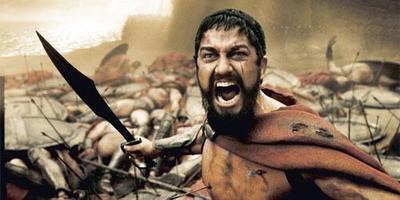Competitor Yahoo did it last year with its famous ‘YOU’ campaign on television, to showcase its revamped features and email service. Last month, Google joined the game on prime time TV with its “The Web is What You Make of it” campaign.
Click here to visit SME Buzz
Also Read
Related Stories
News Now
- Tech companies increase PhD hiring for R&D units
- The big blue sky, cloud computing and you
- Facebook to take top spot in US display ad market
- Stilettos invade niche shopping start-ups as sites attract women
- Facebook to take top spot in US display ad market
- Yahoo India to tie up with schools for internet education
Google’s reason is simple: your product may have the best of features, but if you have to succeed in India, you have to showcase the emotional and personal connections that people have with the web today.
There may be other reasons as well for the new promotion strategy. According to Stat Counter, a web analytics firm, Microsoft’s Internet Explorer leads the market in India with 40 per cent market share, followed by Mozilla Firefox at 32 per cent with Google’s Chrome trailing at third place with a market share of about 23 per cent.
Nikhil Rungta, country marketing head, Google India, says the campaign is to highlight what the chrome browser delivers to internet users. “It’s intuitive and seamlessly connects to Google’s products like YouTube, blogs, emails, pictures etc. We intend to highlight the ease of use with Chrome browser to Indian users who may have not switched or seen our browser.” The company will also run promotional videos online to popularise its browser and related online products.
Rungta says the TV campaign is the culmination of a marketing exercise that began last year. The company invited Google users to share their stories on how internet made a difference to their lives. At the same time, Google also took to promoting Chrome through billboards and newspaper advertisements. Google Creative Lab, an in-house creative agency, worked with ad agency Bartle Bogle Hegarty (BBH) on the campaign, the brief being to show how Chrome is fast and simple and designed to help you make the most of the modern web.
In the next few months, Indian TV viewers will see several real-life stories on how the web has changed the lives of the 100 million internet users in India. “We have stories from celebrities to everyday consumers to small businessmen, all telling us what the web means to them. We will run these stories in our ads too,” says Rungta.
Through a series of short videos, Google wants to share how the web has changed the lives of millions of people and helped them achieve their dreams. It includes a variety of stories from celebrities to everyday consumers to small businessmen.
The first video, “Letters from Dad”, was inspired by a collection of true stories about parents taking advantage of technology and web services to capture and document the lives of their children.
The second video, “Archana’s Kitchen”, which aired last week, tells the story of Archana who grew up in a small town in Tamil Nadu, Coimbatore and took forward her childhood passion of cooking to the web through Blooking (Blog Cooking). She developed a faithful set of followers online, which culminated into a catering service along with a book deal. Archana also runs an active Facebook page with over 4,000 likes so far.
Rungta says the campaign, at its core, is about people. “It opens people’s eyes to how they can connect, inspire and impact the world via the power of the web. It’s also an open invitation to get people online and using the web to its full potential”, he adds.
Brand experts say Google’s strategy to emphasise on what users can do with Chrome, might just work since average users would not care much about the technical benefits of Chrome like rendering speed or apps and extensions.
“Google ads tell a clever story, as they have clearly understood that there is not much value in touting how things work or how sophisticated the technology is. What matters is that it's personal, it's easy, it’s shareable, and that it works,” says Rajiv Dingra, founder of WatConsult, a digital agency.




No comments:
Post a Comment